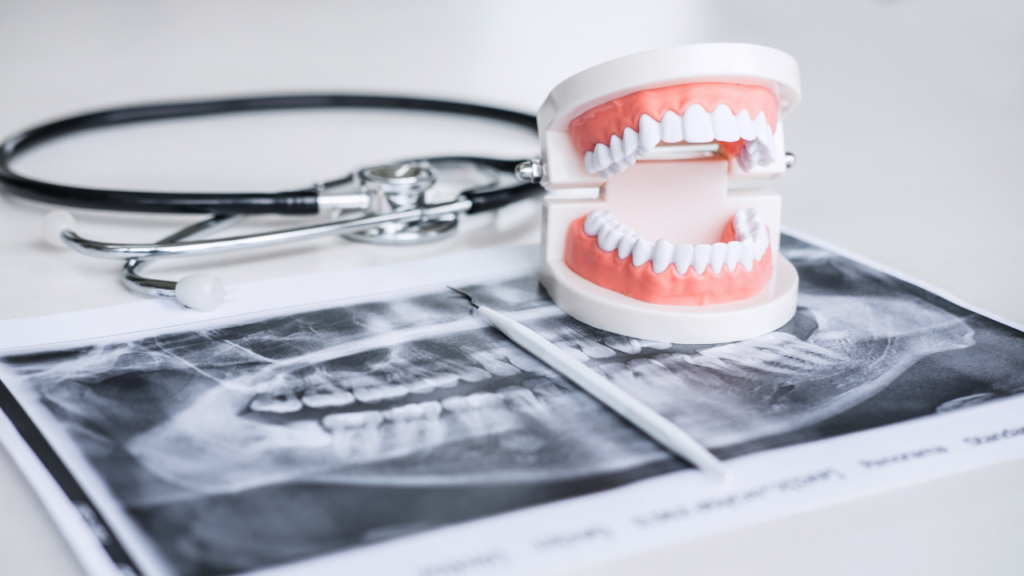Exercise Daily – Tooth sensitivity months after filling happens in some cases, particularly if the filling was deep.
Minimal discomfort or numbness should resolve within two hours after leaving the clinic. If not, this might be a symptom that the filling didn’t adhere properly to your tooth, necessitating a repeat appointment.
Why do we need fillings?
Fillings are necessary. Modest procedures include the removal and replacement of the damaged or decaying portion of your tooth with a durable substance. This substance is molded onto the surface of your tooth to protect it against infection.
The majority of fillings are made of metal, porcelain, resin, or a mix of these materials.
Procedure for Filling
Fillings are undoubtedly the most frequent operation that dentists perform. It is a standard surgery that may relieve discomfort linked with cavities and damaged teeth. It heals the tooth, allowing you to eat and drink properly again.
The procedure for receiving a filling is as follows:
Anesthesia
A local anesthetic is administered to the region around the tooth where the filling will be inserted.
Removal of decay
Your dentist will carefully remove the decayed portions from the damaged tooth. He or she does so by using a tiny drill to chip away at the decay. This procedure takes just a few minutes and causes no pain.
Placing the filling in the damaged tooth
When the decay is removed, the filling is placed in the tooth. Porcelain, resin, metal, PFM (porcelain fused with metal), or a mix of these materials may be used in your filling. The choice of filling majorly depends on your dentist’s recommendation.
Your mouth will remain numb for many hours after the treatment. Moreover, it is recommended that you avoid eating anything during this period. If you feel tooth sensitivity months after filling, it may indicate something wrong with the filling material or tooth.
Why are fillings associated with tooth sensitivity?
Nerve irritation
When a deep filling is done, it is fairly unusual for a nerve to get inflamed. Inflammation and discomfort may occur as a consequence of irritated nerves. Enamel and cementum often shield the nerve from exposure.

However, deep fillings may reach the nerve terminals and generate unpleasant, acute sensations. Moreover, inflamed nerves caused by deep fillings may eventually recover.
Incorrect alignment of the bite
One of the most critical components of fitting and putting a filling properly is ensuring that it is aligned with the patient’s bite alignment. A poorly fitting filling may have an effect on the patient’s bite. It may cause pain for a variety of reasons:
If the filling is overly tall, it might create additional pressure when the individual bites, resulting in pain and discomfort. It is fairly unusual to notice some sensitivity while eating after your treatment. However, your bite should normalize within a few weeks.
If your filling does not self-repair, you will need to see your dentist have it filed down.
Pulpitis
Pulpitis is a condition in which the pulp inside the tooth becomes inflamed, resulting in pain and discomfort. This can cause tooth sensitivity months after filling. Although pulpitis is uncommon with small fillings, it may develop when the following conditions exist:
- Your tooth has been involved in an accident, had an injury, or sustained trauma, resulting in a cracked or shattered tooth.
- Your hollow was rather large and had encroached on the inner pulp.
- The tooth in question has already had numerous fillings.
Is pulpitis curable?
If pulpitis has progressed to the nerve and caused irreversible damage, you will almost certainly need a root canal operation. However, if the pulp stays healthy and just mild inflammation has occurred, pulpitis may not result in this.
Additionally, your dentist should be able to treat pulpitis with a filling or a root canal.
Factors that contribute to tooth sensitivity
If you are experiencing discomfort after your filling, there are a few possible explanations:
Sensitive tooth after filling
Your tooth may be sensitive after the filling — this is totally normal immediately following the procedure. It is critical to stay away from hot and cold meals for at least several hours while your filling settles.
Within a week or so, pain should lessen, and sensitivity should cease after two to four weeks. If it persists for an extended period of time, see your dentist. Tooth sensitivity months after filling may also lead to pulpitis.
Broken or displaced fillings
If your filling was not properly fitted or did not bond adequately to your natural tooth, it may cause pain and discomfort. This may be remedied by returning to your dentist and replacing the filling.
Allergy to your filling
Some individuals have metal allergies, which might alter how their tooth or teeth respond to the new filling. It is important to contact your dentist if you have a metal allergy so they may recommend an alternative material.
Pain Management
Desensitizing toothpaste
Dentifrice with desensitizing properties includes chemicals that assist to protect nerve endings from irritation. The primary active element in this product is potassium nitrate, a chemical that inhibits the transmission of pain signals.
After a few applications, your sensitivity will diminish. Dentists also suggest that you use a soft-bristle toothbrush and mouth rinses that are low in acid or fluoride.
Rinse with salt water
In addition to being a good antibacterial, salt can also aid in the reduction of inflammation. Gargle with a saltwater rinse twice a day to relieve the discomfort associated with sensitive teeth.
To utilize a salt water rinse, follow these steps:
- Mix 12 to 34 tsp of salt into a glass of lukewarm water until completely dissolved
- For up to 30 seconds, swish the solution around in your mouth to dilute it
- Make a spit-take of the solution to help tooth sensitivity months after filling
Hydrogen peroxide
Hydrogen peroxide may help tooth sensitivity months after filling. It is an antibacterial and disinfectant that is moderate in nature. This medication is widely used to help sterilize cuts, burns, and other wounds. Peroxide may also be used as a mouth rinse to help mend gums and reduce inflammation.
To use hydrogen peroxide as a mouth rinse, follow these steps:
- Add two capfuls of 3% hydrogen peroxide to an equal amount of warm water and mix well
- For up to 30 seconds, swish the solution around in your mouth to dilute it
- Make a spit-take of the solution
- After you’ve finished, rinse your mouth with water to eliminate any residual hydrogen peroxide.
Honey and warm water
Honey is an antibacterial agent that may be used to treat wounds, according to a reputable source. It may aid in the speeding up of the healing process as well as the reduction of pain, edema, and inflammation.
Rinse your mouth with warm water and a tablespoon of honey to relieve the discomfort caused by sensitive teeth. This rinse will aid in the healing of the mouth.
Turmeric
Turmeric may be used as anti-inflammatory medication in addition to being used in cooking. It includes a chemical known as curcumin, which has anti-inflammatory properties. It is very good if you have tooth sensitivity months after filling.
Ayurvedic medicines, digestive disorders treatments, and wound healing agents have all made use of this herb in its many forms. You may apply ground turmeric to the teeth to improve oral health and reduce discomfort associated with sensitive teeth.
An option is to produce a topical paste using 1 teaspoon turmeric, 12 teaspoon salt, and 12 teaspoon mustard oil and apply it topically. Pain alleviation may be obtained by applying this paste to the teeth and gums twice a day.
Green tea
Green tea is another product that is well-known for its health-promoting properties. Because of its antioxidant and anti-inflammatory characteristics, it has been employed in cancer prevention and cardiovascular health research investigations.
Green tea may also be beneficial to one’s dental health. Use unsweetened green tea as a mouthwash twice a day to strengthen teeth and decrease inflammation in the mouth.
Vanilla Extract
In addition to being antibacterial, the vanilla extract also has pain-relieving qualities. It has been used to alleviate the pain and discomfort experienced by newborns when they first begin teething.
Pour vanilla extract onto a cotton ball and place it between your teeth to treat sensitive teeth. Apply the cotton ball to your gums for a few minutes, and then repeat the technique as frequently as necessary.
Capsaicin
Capsaicin is a chemical present in chili peppers and many other spicy peppers, and it is responsible for its heat. It is this that gives these peppers their fiery flavor. Known for its analgesic characteristics, capsaicin treats burning mouth syndrome.
You may apply capsaicin topically to the teeth or use it as a mouth rinse to relieve sensitive teeth. It may burn at first, but with repeated application, it will ultimately diminish pain sensations and tooth sensitivity months after filling.
What to do if you have a sensitive tooth?
The majority of dentists will prescribe gentle toothpaste to individuals who have just had a filling placed. Potassium nitrate is the chemical ingredient that assists in preventing sensations from the tooth’s surface from reaching the nerves inside.

Avoid whitening toothpaste, since it may aggravate dental sensitivity. Apart from sensitive toothpaste, people with a sensitive tooth after a filling may want to consider the following:
- Over-the-counter analgesics (or medication suggested by your dentist)
- Using a toothbrush with a soft bristle
- Brushing and flossing twice daily, focusing gentle attention on the freshly filled tooth
- Avoid beverages that increase your sensitivity, such as hot, cold, and/or surgery beverages.
If your tooth sensitivity months after filling does not improve after your filling, it is recommended that you see your dentist, as there may be issues with the filling’s location or sensitivity that is unrelated to the filling.
Frequently Asked Questions
How long can tooth sensitivity last after a filling?
The sensitivity associated with a dental filling should subside after two to four weeks. If the sensitivity does not seem to be improving during this time period, or if it persists for more than four weeks, you should consult your dental professional.
How long does it take for nerves to settle after fillings?
If you have had a deep filling done and are feeling discomfort, it is possible that the filling has touched a nerve and has inflamed it as a result of the procedure.
However, if the nerve discomfort or sensitivity does not improve within two to four weeks, it may be necessary to seek professional dental assistance.
How do you know if your filling is infected?
- Fever
- Severe toothache
- Sensitivity to hot and cold foods
- Swollen face or cheeks
- Difficulty swallowing
- Pain when biting down
- Swollen, tender lymph nodes in the neck or jaw
Can fillings cause tooth sensitivity?
It is quite normal for people to have tooth sensitivity months after filling. A tooth may be sensitive to many stimuli such as pressure, air, sweet foods, or temperature changes. Usually, the sensitivity subsides on its own within a few weeks after being diagnosed.
During this period, stay away from the items that are triggering your sensitivity.
Why do my old fillings hurt?
If a certain place of your tooth is constantly unpleasant or the cause of pain, it is possible that you have a broken or loose filling in that area. As a result of eating, the pressure might be applied to the filling, aggravating the tissue underneath.
If food particles or liquids manage to become trapped behind a loose filling, this may also be quite uncomfortable.
Take Away
Patients who endure dental sensitivity or discomfort even months after a cavity filling may have an underlying reason. Your dentist may determine by the dentist. After filling a cavity, the typical duration for experiencing tooth sensitivity should be a few days to a few weeks.
A symptom that there is anything wrong with your teeth is if you continue to experience tooth sensitivity beyond this time period. The best course of action is to schedule an appointment with your dentist.
The dentist will diagnose the issue with the tooth or the filling and will prescribe therapy to alleviate the sensitivity.



